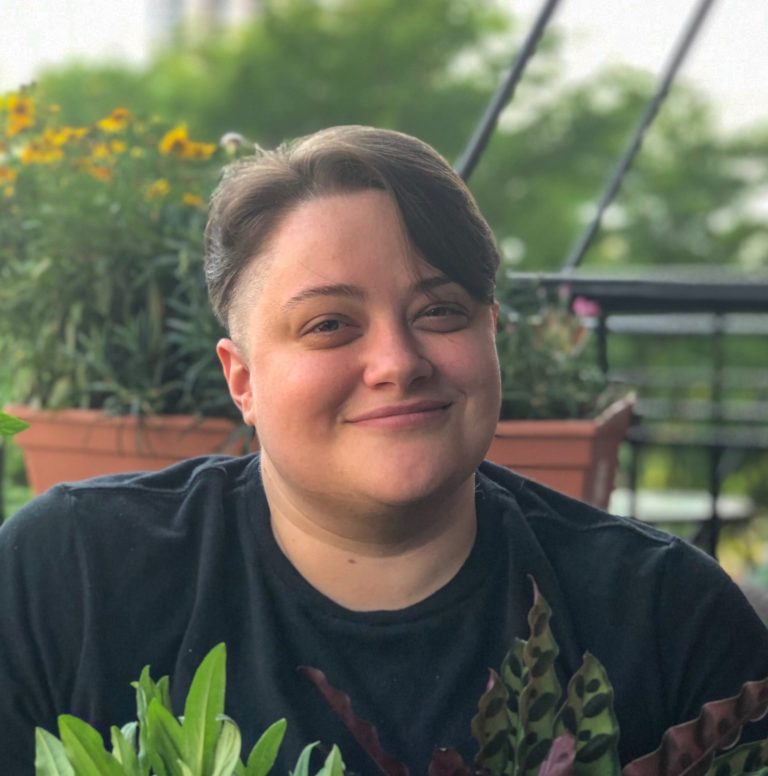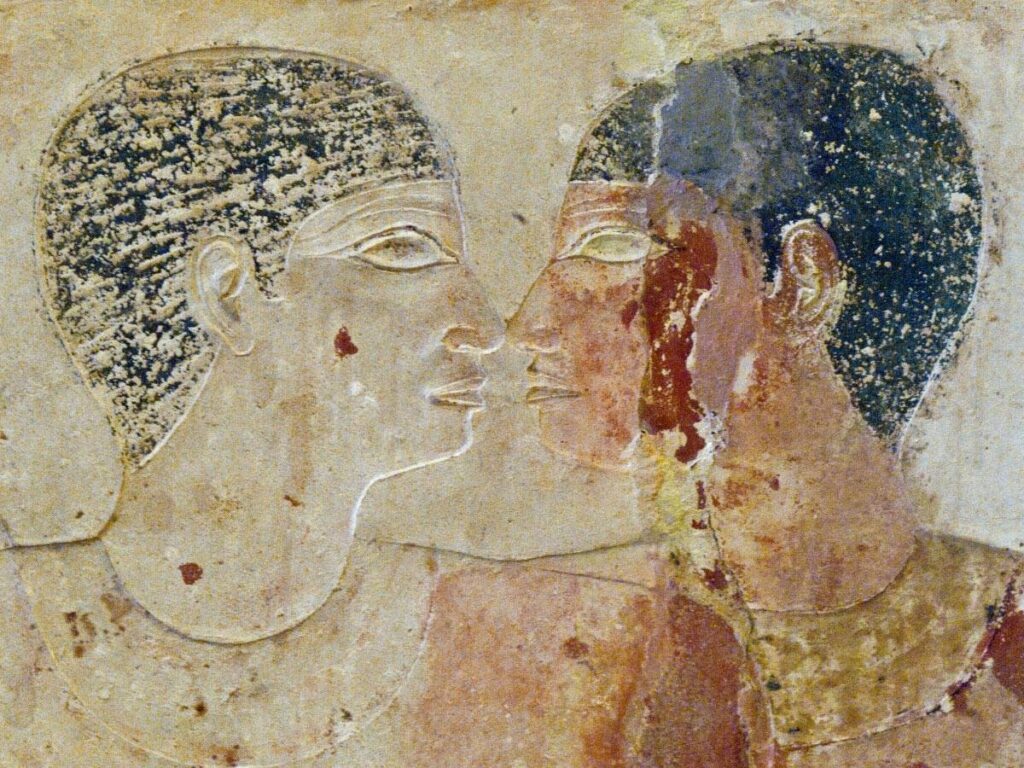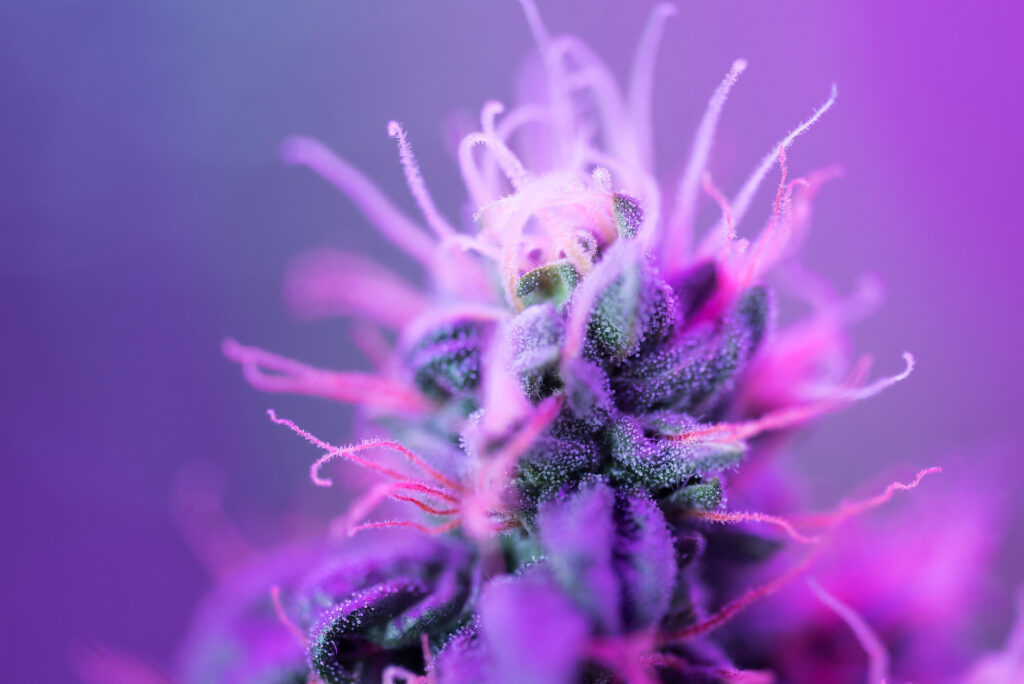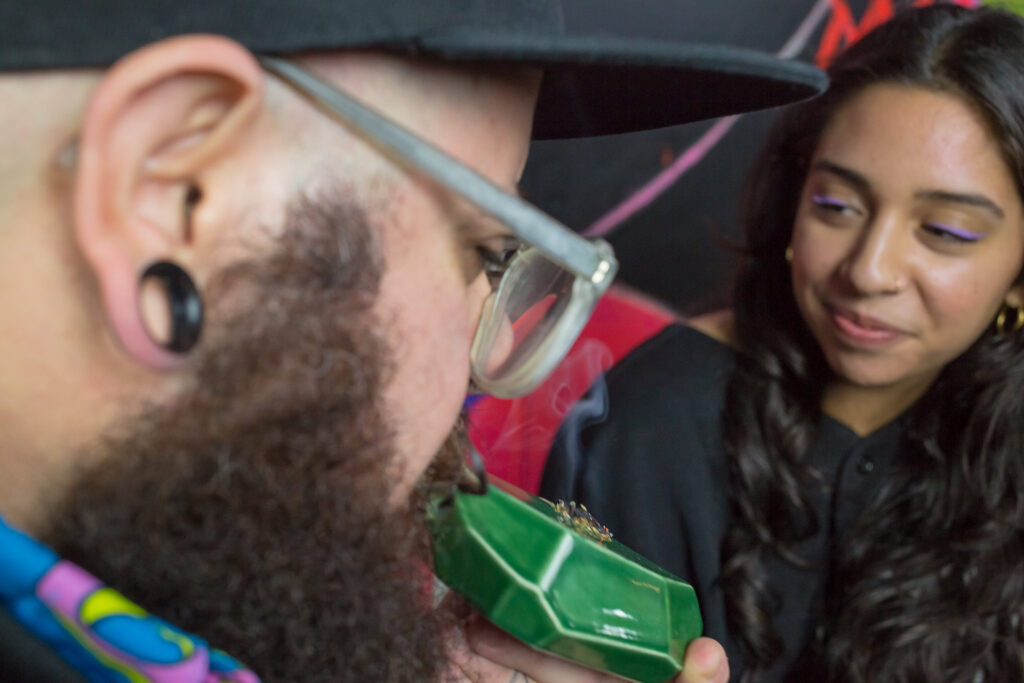
LGBTQIA+ people and cannabis enthusiasts share similar experiences when it comes to legal progress, political challenges, and a continued quest for equality.
Weed is not attracted to other same-sex weed. A nug cannot have a gay wedding. A joint does not identify as genderqueer. An edible cannot talk with me about the new L Word: Generation Q.
However, weed is core to the experience of many queer people. In fact, one study says that queer people consume cannabis at higher rate than straight and cis people.
In this series, part of Leafly’s celebration of Pride month, we’ll explore some of the connections between queer people and cannabis in terms of history, health, culture.
Long before modern attempts to further queer rights, queer people existed. Cultures across the world began mentioning the presence of a third gender, two-spirit individuals, and other alternate gender presentations centuries ago.

In ancient societies like Greece, Rome, and Egypt, it wasn’t unheard of for same-sex pairs to be depicted together in a romantic sense in art or mythology or even buried together. And while it’s hard to draw direct conclusions from the little information we have about queer people in ancient society, there is mention of queer people in visual arts and literature going back thousands of years.
- 1688: Japan’s first gay bar opens
- 1790s: Monaco, The Kingdom of Prussia, Luxemburg, and Belgium decriminalize sodomy
- Late 1800s and early 1900s: the concept of a “Boston marriage”, or the long-term partnership between two women, appears in American high society.
But despite centuries of existence, many modern religions and societies struggled to accept LGBTQIA+ people – perpetuating false ideas that they were dangerous or morally corrupt.
Cannabis has a history just as ancient. People in Central Asia have known about its power, including it in tales since as early as 2737 B.C. Cannabis seeds have been found in the graves of shamen in both China and Siberia as early as 500 B.C. And we also know there is a vibrant history of edible usage during the Islamic Golden Age.
Related
Weed rituals: a cross-cultural connection to calm
Hemp played a vital role in helping America become an industrial and agricultural powerhouse from its inception. But eventually, taxation and fear won over.
The US government passed legislation like the 1937 Marijuana Tax Act and The Controlled Substance Act of 1970 – leading to federal cannabis prohibition. Once cannabis was criminalized in this way, it was easy for many people to write weed off as a danger.
Both the LGBTQIA+ community and cannabis have more than their ancient history in common. They have been unfairly demonized in the public forum, where cannabis prohibition and anti-LGBTQIA+ policy have been used as moral imperatives instead of intentional political choices.

The shift towards the more fair and compassionate treatment of both cannabis users and queer people has been a welcome change in recent years.
Nearly two decades after the Defense of Marriage Act was signed in 1996, gay marriage became nationally legal. But only after a string of states legalized it on their own. While gay marriage isn’t the only issue facing LGBTQIA+ people, its legalization helped speed up other protections for queer people for things like housing, employment, parenting, and medical care.
Weed has followed a similar blueprint towards national legalization, with an increasing number of states legalizing either medical or recreational cannabis. There’s pressure on the current administration to consider a path forward for national legalization, and the passage of every state’s cannabis program helps provide cannabis users with more protection and care. Sound familiar?
Hate goes up in smoke

Today, the majority of Americans support both the rights of queer people and comprehensive cannabis legalization. 76% of Americans say they are pro-LGBTQ+, while 68% of Americans support cannabis legalization.
Related
Dear Joe Biden: Here’s the data, now it’s time to embrace marijuana legalization
We’ve got a long way to go, but it’s important to celebrate the little victories and appreciate activists in both cannabis legalization and LGBTQIA+ rights. They are the people that have helped us get to where we are today.
The future is brighter, safer, and more just for cannabis users and for queer people, as long as we never stop fighting for what’s right and never stop confronting the work we still need to do as a community and as a country.
By submitting this form, you will be subscribed to news and promotional emails from Leafly and you agree to Leafly’s Terms of Service and Privacy Policy. You can unsubscribe from Leafly email messages anytime.
